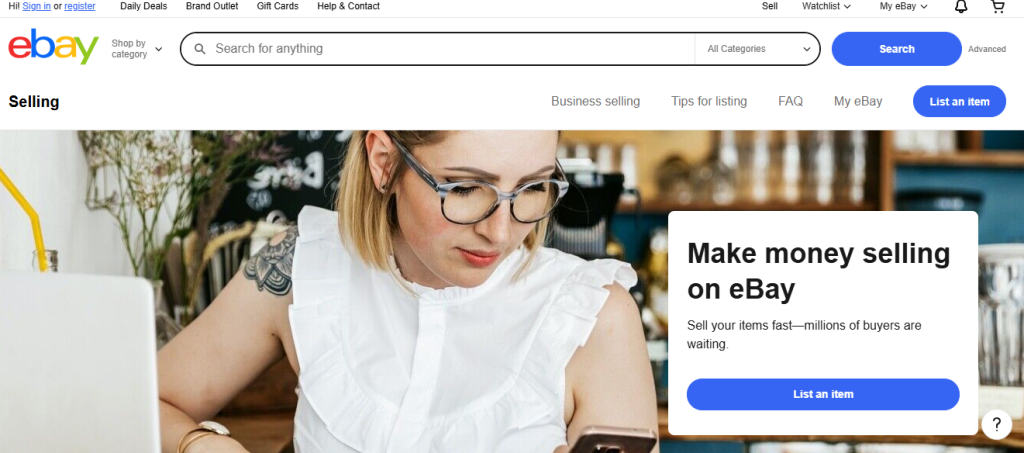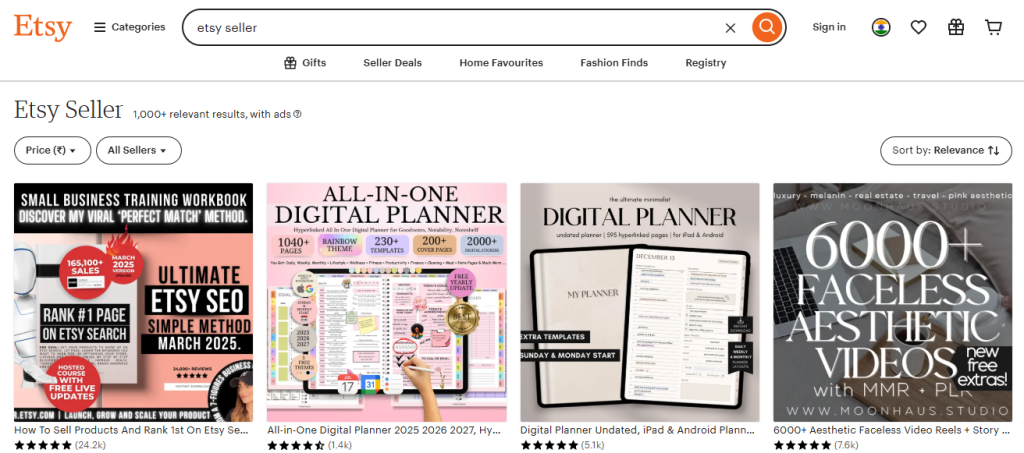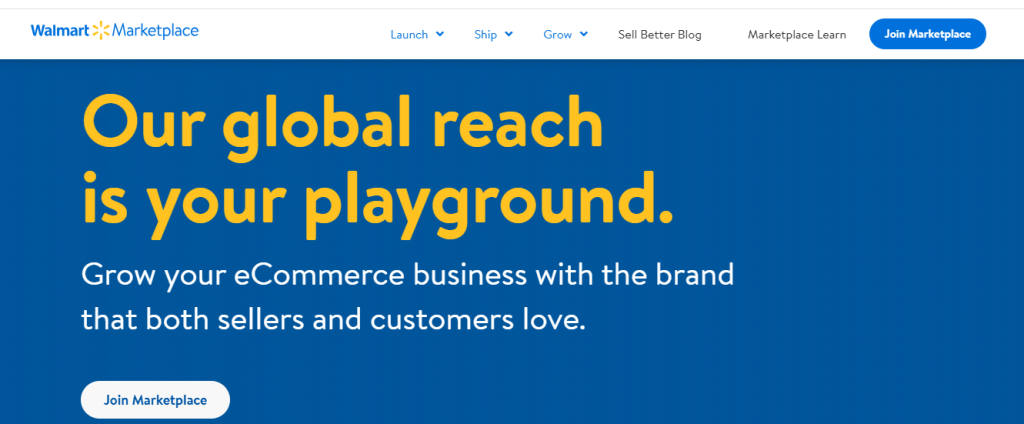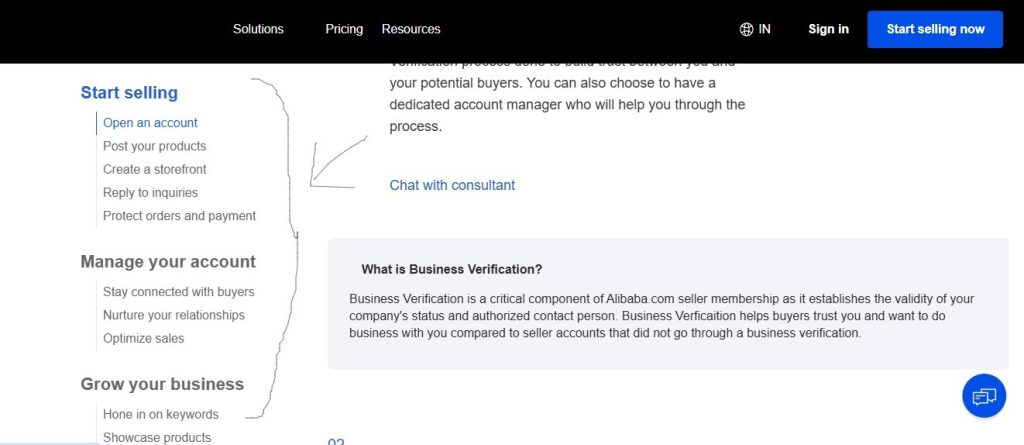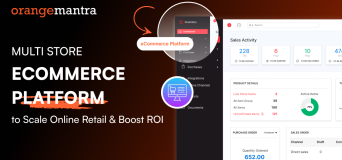Amazon which was founded in late 90’s is now the global ecommerce market leader with a worldwide revenue of 152.8 billion U.S. dollars as of 2024 data of Statista. It opened the gates of the ecommerce landscape for many other companies.
The eCommerce industry has witnessed massive growth over the past decade, especially during and after the pandemic. Now multi vendor marketplaces are emerging as a dominant force.
A multi vendor marketplace is an online platform where multiple sellers can list and sell their products. If you are selling products on marketplaces, you don’t have to manage the infrastructure, transactions, and customer service. This is all done by marketplace owners.
Businesses are shifting to this model due to its scalability and revenue potential. Many single entrepreneurs and small businesses are looking for the best multi vendor marketplace platform to establish a profitable online store.
This article explores the top multi vendor marketplaces and the future trends of marketplace software you should must know.
Table of Contents
What are Multi-Vendor Marketplaces?
A multi-vendor marketplace website is an eCommerce platform where independent vendors sell their products. Some names are Amazon, eBay, or Etsy.
Note that a single vendor eCommerce website is operated by one seller. Whereas a multi-vendor website brings together multiple businesses under one digital roof.
In the multi-vendor model, vendors manage their own inventory, and the rest of the marketplace functionality is taken care of by the owner. Multi vendor marketplaces have gained popularity because they offer a wide range of products without requiring the platform owner to stock inventory.
This structure benefits all parties that are involved. Sellers gain access to a large audience, customers enjoy diverse product selections, and marketplace owners earn commissions from transactions.
List of Online Marketplaces (Multi-Vendor) in 2025
As the demand for multi vendor marketplace platforms continues to rise, several marketplaces have established themselves as industry leaders. Here are some of the most influential multi-vendor eCommerce platforms in 2025:
Amazon Marketplace
Amazon is the best multi vendor marketplace platform with millions of sellers offering a diverse range of products. It offers Fulfillment by Amazon (FBA) service where Amazon handles storage, packing, shipping, and customer service for your products.
This multi vendor marketplace also gives your customers access to fast Prime shipping. FBA is part of Amazon’s automated supply chain services.
Standard selling fees of Amazon Marketplace:
- Individual – $0.99 / item sold
- Professional -$39.99 / month
eBay
This multivendor ecommerce website is known for its auction-based selling model. eBay provides vendors with flexible listing options. It’s a preferred online marketplace platform for used, collectible, and niche products.
If you want to open a store on this online market place, here are the prices per month.
| Store type | Monthly renewal | Yearly renewal |
| Starter | $7.95 | $4.95 |
| Basic | $27.95 | $21.95 |
| Premium | $74.95 | $59.95 |
| Anchor | $349.95 | $299.95 |
| Enterprise | Not currently available | $2,999.95 |
| Note: These numbers are taken from eBay website and may change by the time you read, so cross check carefully. | ||
Etsy
Etsy is an online marketplace website that focuses on handmade and vintage goods where independent artisans and crafters sell unique items. This multi vendor marketplace platform provides vendors with a well-structured storefront, SEO tools, and an active buyer community.
Etsy Pricing:
Etsy Standard: Free, default for all sellers.
Etsy Plus: $10/month (billed in USD, may vary with exchange rates). Taxes like VAT may apply based on location.
Walmart Marketplace
Walmart has expanded its eCommerce presence by allowing third-party sellers to list their products. Walmart Marketplace has become a strong Amazon competitor. This multi vendor marketplace has a vast customer base and competitive pricing.
This multi vendor marketplace software has a set price range as per the product you are selling. Check its pricing for your product here.
| Category | Referral Fee |
| General Categories | 15% (Books, Toys, Home, Kitchen, Office, etc.) |
| Electronics & Appliances | 8%-15% (Electronics: 8%, Accessories: 15%, PCs: 6%) |
| Jewelry & High-Value Items | 20% up to $250, then 5% (Jewelry); Watches: 15%-3% |
Alibaba
Alibaba is one of the best multi vendor marketplace platforms that primarily serves businesses rather than individual consumers. It functions as a B2B marketplace website that connects manufacturers and wholesalers with buyers worldwide.
This multi vendor marketplace has a global supplier network where thousands of verified manufacturers and wholesalers provide a vast selection of products. Businesses can collaborate with suppliers to create private-label or custom products.
Quarterly Pricing:
- Standard – $299.00/month
- Basic – $199.00/month
Mirakl-Powered Marketplaces
Mirakl provides enterprise-level marketplace software. It supports both B2B and B2C selling. This online marketplace platform helps retailers to launch and scale their own digital marketplaces with AI-driven automation.
These marketplace online options cater to different business needs, from global giants to niche-specific platforms.
The Future of Multi-Vendor Marketplaces
Online commerce is moving fast, and new trends and ideas are changing multi vendor marketplace software development. Here are some trends to watch in 2025:
Rise of Niche Marketplaces
There are many specialized marketplace websites that are focusing on very specific product categories. You can easily find organic goods, luxury fashion, and handmade crafts that are making good ecommerce business. Customers prefer personalized experiences over generic marketplaces.
AI-Driven Personalization
You cannot put Artificial intelligence out of eCommerce. AI is helping ecommerce owners to offer personalized recommendations, automated customer support, and dynamic pricing strategies for more user engagement.
Blockchain for Secure Transactions
Decentralized marketplaces are gaining popularity. These multi vendor marketplace platforms run on blockchain technology. They are removing the need for a central authority (like Amazon or eBay) to control transactions. Instead, buyers and sellers interact directly using smart contracts.
Conclusion
The multi vendor marketplace models are key players in eCommerce. They provide great opportunities for businesses and entrepreneurs. There is one more point that we forgot to tell, it is not mandatory to join an existing platform. Guess what, you can build your own custom multi vendor marketplace software as well.
AI automation, tech advancements, and changing customer needs are what we will see in the near future of multi vendor eCommerce. The right multi vendor website can help businesses succeed in this competitive space.
FAQs
Q1. What is a marketplace in eCommerce?
A marketplace in eCommerce is an online platform where multiple independent sellers can list and sell their products. The marketplace owner is responsible for the infrastructure, transactions, and customer support of the website. Vendors control only inventory and pricing.
Q2. How do I choose the best multi vendor marketplace platform?
Before that you need to have clarity about what you want. Ease of use, customization options, vendor management features, payment processing, and scalability are some major considerations. Platforms like Shopify, WooCommerce, and Mirakl offer different levels of flexibility based on business needs.
Q3. What are the advantages of a multi vendor marketplace over a single vendor eCommerce website?
A multi vendor marketplace offers a larger product selection. You can generate multiple revenue streams with reduced inventory management responsibilities. A single vendor eCommerce website is limited to one seller’s products and requires more management.


